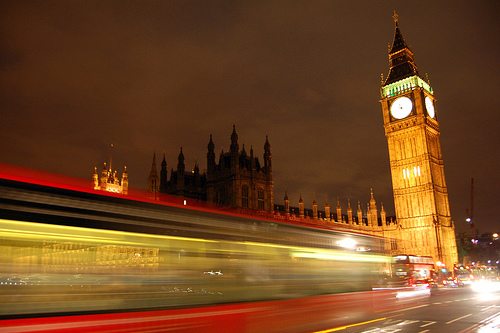

Economy
Budget 2014: the reaction
The chancellor George Osborne has delivered his annual budget statement, a plan that he claims is “for the makers, the doers and the savers“. His full speech can be found here.
Below is a selection of budget responses from people in the sustainability and finance space, updated as and when we receive them.
Nina Skorupska, chief executive of the Renewable Energy Association
“We welcome the chancellor’s acknowledgement that the way to bring down energy costs over the long-term is to invest in home-grown energy sources, including renewables, as well as energy efficiency. The budget’s acknowledgement of a need to ‘reform and strengthen’ the EU Emissions Trading System is also welcome. But the new, short-term measures announced today in the energy sector do not reflect this ambition – and there is much more in this budget to please fossil fuel companies than the green economy.
“By freezing the carbon price floor, the chancellor is rowing back on his own policy and once again moving the goalposts for investors in green energy. Government must explain in black and white how investment in renewables is protected from the freeze, or risk undermining the investment required to replace ageing coal power stations with technologies that can keep the lights on without damaging the climate.”
David Powell, economics campaigner at Friends of the Earth
“Despite George Osborne’s pledge last month to tackle climate change, it’s dirty business as usual in this year’s budget.
“Merely weeks after promising action on flooding and global warming, the best the chancellor can manage is a U-turn on his own reckless flood defence cuts, and caving in to big business lobbying on pollution tax.
“Mr Osborne says he wants to make our economy ‘resilient’, but Britons face paying a hefty price for his failure to confront the reality of climate change.”
Tim Yeo MP, chair of the energy and climate change committee
“Capping the carbon price floor and exempting the fuel used in combined heat and power generation by manufacturing firms are both very welcome steps. As the committee has previously noted, the Treasury’s decision to introduce a unilateral tax to top-up the EU carbon price actually did very little to reduce emissions overall, despite penalising British energy consumers with higher costs.
“As the price of carbon was so low in the EU Emissions Trading Scheme, any emissions reductions the carbon price floor delivered in the UK simply allowed other member states to emit more. As such it was seen by many as a revenue raiser for the Treasury that damaged public trust in taxes on pollution.
“Freezing the price of carbon here could also eventually make dirty polluting coal power stations more economically viable in the UK. This could potentially divert investment from some cleaner technologies including gas.”
Energy UK, the trade body for the energy industry
“The energy industry supports families, businesses and communities and is playing a key role in the recovery of the UK economy through investment, jobs and competition. In the overall interests of the UK the energy industry supports capping the carbon price floor to keep costs down for heavy industrial energy users, to reduce the potential to create a cliff edge for coal generation and to help make sure there is more capacity available. But it also has downsides – an important one is that it worsens the economics of the essential generation of electricity from gas.
“Energy is complex and complicated and you cannot move one piece without a knock-on effect across the board. Clear and stable policy is required to get the investment flowing to: start building our secure energy future now; bring new gas plant on stream to meet demand; provide the back-up needed for intermittent renewable generation; and create jobs. To get there we need a mature discussion, across all parties and with the public, about how the UK balances the cost of renewables and the impact on our bills with future security and continuing investment in jobs and technology.”
Jonathan Jenkins, Social Economy Alliance spokesperson and chief executive of the Social Investment Business
“[The new 30% tax relief rate for social investment] is excellent news for Britain’s social economy. Many thousands of new and maturing social ventures need finance to grow and reach their true potential. The Social Investment Forum has fought long and hard for this tax relief, which should bolster the social investment market and get more investors pumping capital into social enterprises and charities.
“But this will be a missed opportunity if it’s not fully promoted by government, who should work with the sector to market and promote the tax relief, so more businesses and investors can improve their social impact. This relies on the collaboration of the whole financial advisory community.
“It’s a critical time for the social investment market. The world is increasingly relying on social economy organisations to tackle some of its most pressing problems. But, like all businesses, they need capital and investment to survive.”
Kevin Mountford, head of banking at MoneySuperMarket
“Today’s announcement by the chancellor, that cash and stocks and shares ISAs will be merged into one New ISA (NISA), with the annual limit rising to £15,000 from July 1 is brilliant news, and has come as a total surprise. This limit almost trebles the current cash ISA limit, and it will also increase the stocks and shares limit by almost a third, which is great news for beleaguered savers.
“Savers have been hit particularly hard during the financial crisis, with low rates leading to difficulties for many savers who rely on their savings pots for income and those who are looking to maximise returns. The chancellor is finally focusing on helping savers, and the simplification of ISAs can only spell good news, helping people save further. In addition, the NISAs will allow people to choose between stocks and shares or cash ISAs, or even a mix of the two, as well as the ability to transfer freely between the two, allowing for greater flexibility. The new rules will also allow for peer-2-peer lending to be included within a tax-free ISA allowance which will be particularly beneficial as rates on P2P investments are generally higher than with standard cash savings accounts, although a date for when P2P will be included in the ISA wrapper has not been confirmed.
“The introduction of Pensioner Bonds through NS&I will also provide alternative competitive options for older savers who are more likely to require higher returns on their money. As always, the devil is in the detail, especially with regards to the transfers options, and we will wait to see what that says.”
John Alker, director of policy and communications at the UK Green Building Council
“Any real hope that the chancellor is committed to the green agenda faded long ago but what remains deeply disappointing is that he doesn’t recognise a growth opportunity when he sees one. There continues to be a complete blind spot on the role that energy efficiency has to play in reducing consumer bills over the long-term, and generating home-grown jobs.
“A one-off £15 cut to household bills will be quickly forgotten – what is needed is long-term incentives to reduce the demand for energy in the first place.
“Hoped for clarity on zero-carbon homes and non-domestic buildings was also conspicuous by its absence. With energy bills £800 less than the average home, you would have thought government would want to shout about this policy from the roof-tops. Sadly, the future of Allowable Solutions still remains unclear.”
John Sauven, executive director of Greenpeace
“The most notable thing about this budget was its lack of ambition in connecting the economy with the environment, one of the key drivers of growth globally. Four years ago we were told it will be the ‘greenest government ever’. Today, the absence of any green growth strategy or measures to deal with the risks of climate change is a damning indictment of a government that has clearly lost its way.”
Mark Kenber, CEO of the Climate Group
“This year’s budget, the final one before the general election, was the chancellor’s opportunity to fulfil the prime minister’s promise of being ‘the greenest government ever’. While there were some green shoots of promise, we are left waiting yet again by this government for the hard facts that will accelerate the UK’s transition to a low carbon, high growth economy.
“The chancellor made a commitment to ‘access every drop of oil we can’ in the North Sea. We must see this same, if not greater, level of commitment from the government towards building a resilient renewable energy sector. There is the very real opportunity for the UK to cement its position as a global leader in renewable energy – our renewable energy capacity is only at 4.2%, and we are dwarfed by our European neighbours and only just greater than Malta and Luxembourg. We need to attract investors to our shores, protect the UK’s energy security and add to the 18,000 people already employed full time in the wind, wave and tidal energy sectors. To do this we must send a clear message to the world that the UK is open for business with a trained workforce and a government fully committed to a low carbon future.
“The chancellor wants to see ‘made in Britain’ stamped on products across the world. So do we. I want to see these three words on solar panels, smart grids, LED lighting, wind turbines and the next new low carbon breakthrough. The current figures show the UK green economy growing at 5% per annum. It is the unsung hero keeping Britain’s economy moving. We know that the businesses we work with are ready, and we’re ready to work with this government to make it happen.”
John Cridland, director-general of the CBI
“The budget will put wind in the sails of business investment, especially for manufacturers. This was a make or break budget coming at a critical time in the recovery and the chancellor has focused his firepower on areas that have the potential to lock in growth. The CBI has pushed hard for this significant and much-needed energy package that will help keep manufacturing jobs in the UK, while underpinning vital investment in new energy. The doubling and extension of the Annual Investment Allowance, together with making the seed enterprise investment scheme permanent, will be a shot in the arm for many medium-sized businesses.
“On pensions, what’s important is that people on low incomes can make more informed decisions on defined contribution schemes. For many, that will still mean taking advice and buying an annuity, but the increased flexibility will be welcomed. We are pleased that the Government has chosen to consult on the implications of making a similar change to defined benefit pensions as stability for these schemes is essential. Changes to the ISA system reflect our call to help rebuild a savings culture.”
Sean McCann, personal finance specialist at NFU Mutual
“The chancellor’s budget surprise announcement that Annual Investment Allowances for businesses would be doubled to £500,000 until the end of 2015 is great news for rural businesses. It should encourage investment in new plant and machinery, boosting incomes and helping create jobs in the rural economy. To help businesses make long-term plans for development we urge the chancellor to make this increase permanent in the next budget.”
Ben Stafford, head of public affairs at WWF-UK
“The chancellor’s announcement of an additional £140m for the repair and maintenance of flood defences is welcome. But Mr Osborne missed an opportunity to set out a longer term approach to tackling the increased risk of flooding, which should include incentivising farmers and others to manage land so that water is retained upstream for longer, rather than rushing into our lowlands and urban areas. Using our natural assets better to mitigate the worst impacts of extreme weather is the right long-term approach for the economy, communities and the environment.
“The chancellor emphasised that this was a Budget for those who build, invest and manufacture. But his Budget Statement will have left those in the growing low carbon sector uncertain about the Government’s support for their businesses. Mr Osborne could have sent a strong signal that he backs both UK leadership on climate change and the industries that will take us to a low carbon future by confirming his support for the Fourth Carbon Budget and its ambitious emission reduction targets for the 2020s. That announcement did not come today – we need to hear it soon to give the necessary boost to a low carbon sector that already employs close to a million people in the UK.
“While the competitiveness concerns linked to the UK carbon floor price are understandable, the government’s decision to freeze the floor price, combined with other recent policy decisions, is improving the economic outlook for the UK’s polluting coal power stations. The government must come up with a clear plan to avoid prolonging the life of our dirtiest power stations at a time when we need to be moving rapidly towards a low-carbon future.”
Doug Parr, chief scientist at Greenpeace UK
“George Osborne’s budget throws a multi-million pound bung to coal plants. Coal is the dirtiest and most damaging fuel on the planet and it should be left in the ground not given a financial leg-up. Freezing the carbon floor price without further measures to ensure that coal is driven off the grid shows that this government has caved into pressure from the coal lobby and downgraded climate action. Clearly nothing has been learnt from the recent flooding. The public have sent clear signals that they want action on climate change to minimise extreme weather events, but Osborne and Cameron have not listened.
“This winter the floods have shown what climate change means for Britain in the future. Families up and down the country will have to face the risk of more flooded living rooms. This floods package is far too little to deal with the emergency we face.
“In the 21st century the chancellor should not be incentivising business to become dirtier and more polluting. The government would be better off using this money to help UK industry become a world-leader in energy efficient manufacturing, increasing their profits and helping with climate change.”
Nicki Whittaker, rural affairs specialist for NFU Mutual
“The rural road network is essential for rural businesses. Any measure to help reduce the burden of fuel costs for local businesses and improve the condition of the rural road network is welcome, particularly after the recent period of prolonged bad weather, however, it is important that the government continues to invest in the road network.”
Huw Davies, head of personal banking at Triodos Bank
“Today’s budget announcement will be a welcome boost to many savers, but missed an opportunity to also benefit the UK’s green economy. This increase could have been used to scale-up the green economy, if the chancellor had resurrected his idea of green ISAs. Less than two weeks have passed since the House of Commons cited a £12 billion hole in the funding needed to finance the transition to a low-carbon economy. The funds likely to be raised by the uplift could have helped to plug the funding gap, injecting capital into the green economy while still providing a welcome tax incentive to UK savers.
“Savers can still put their increased ISA allowance to work for good by moving to an ethical ISA. This not only means you get a good financial return, but also peace of mind that your ISA is making a positive difference to people, society, and environment. At Triodos Bank, our savers will always know exactly how we are using their money, and that it is only financing organisations delivering a positive environmental, social or cultural impact.”
Further reading:
Budget 2014: Osborne must lay out vision for greener UK, says Lord Stern
Budget 2014: government must ‘turbocharge’ green deal and energy efficiency efforts
My budget 2014 wishlist: Julian Parrott, ethical financial adviser
Budget 2014: government must stop spiralling energy costs, says UKGBC


 Environment12 months ago
Environment12 months agoAre Polymer Banknotes: an Eco-Friendly Trend or a Groundswell?

 Features11 months ago
Features11 months agoEco-Friendly Cryptocurrencies: Sustainable Investment Choices

 Features12 months ago
Features12 months agoEco-Friendly Crypto Traders Must Find the Right Exchange

 Energy11 months ago
Energy11 months agoThe Growing Role of Solar Panels in Ireland’s Energy Future





























